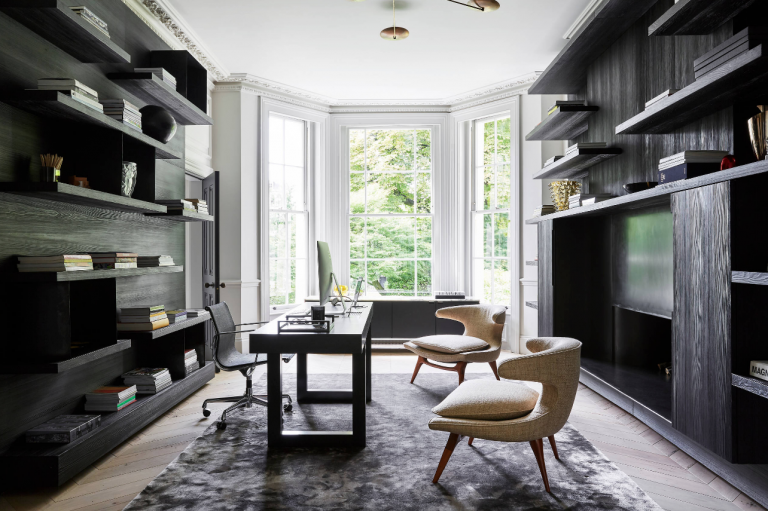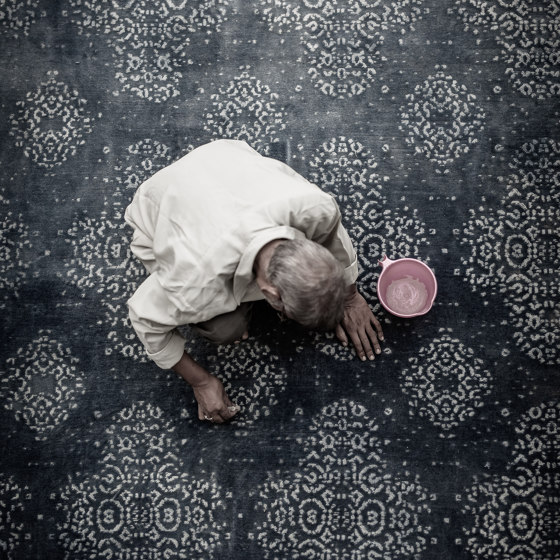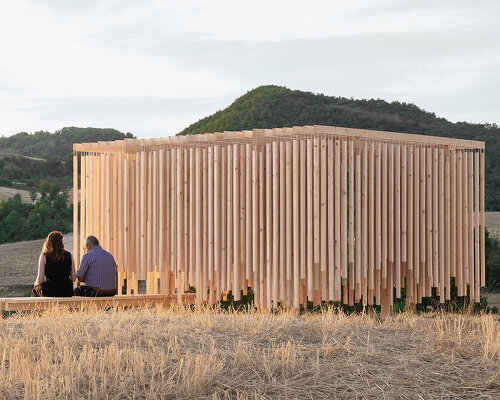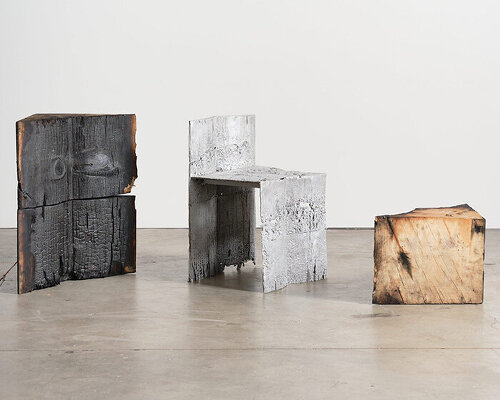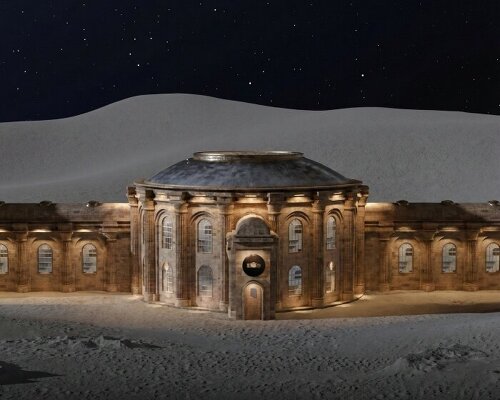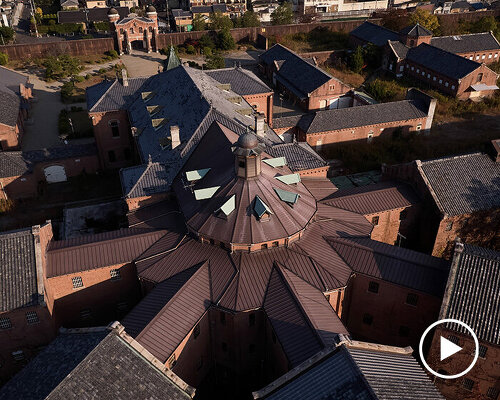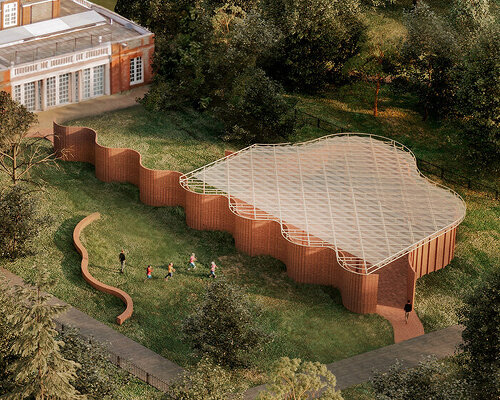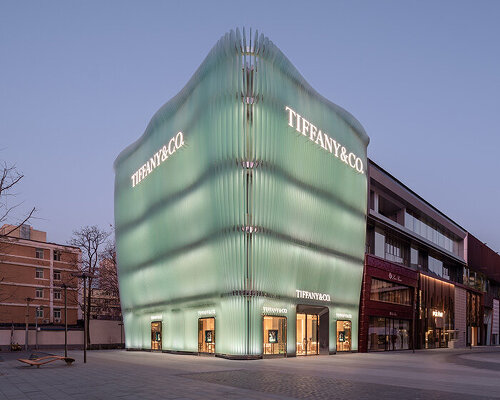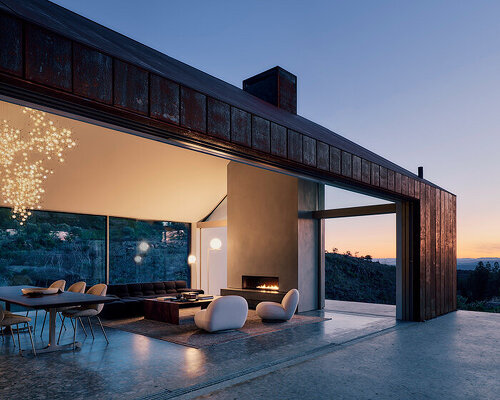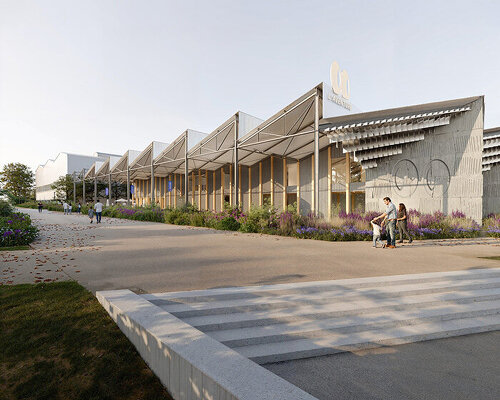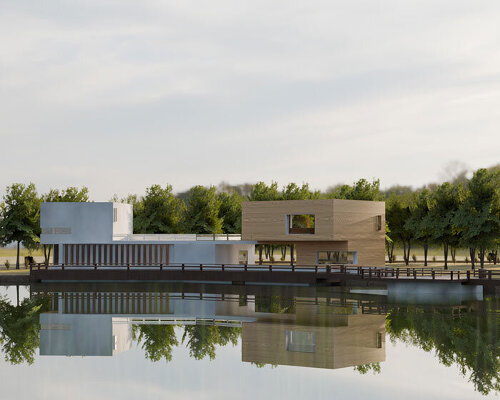farshid moussavi shapes houston’s upcoming ismaili centre with perforated screens

A new cultural center for Houston
Set to open in November 2025, the new Ismaili Centre in Houston, Texas introduces an architectural presence of quiet strength and civic openness. Designed by London-based studio Farshid Moussavi Architecture, the 150,000-square-foot complex will be the first Ismaili Centre in the United States and the seventh in a global network of architecturally significant institutions located in London, Lisbon, Dubai, Dushanbe, Vancouver, and Toronto.
The center is located near Houston’s Museum District and engages with its surroundings through a measured composition of stone, perforated metal, and glass. The design reflects the Ismaili community’s long tradition of building spaces that embody pluralism, learning, and cultural exchange.
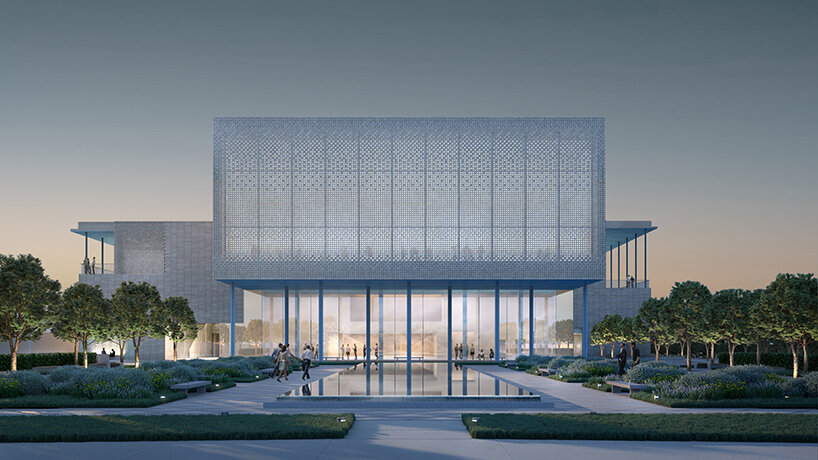
the Ismaili Centre will be a new civic landmark for Houston, Texas | visualizations courtesy the Ismaili Centre
Farshid Moussavi’s luminous structure
The architecture of Farshid Moussavi’s Ismaili Centre is defined by its balance of openness and enclosure. At its center is a five-story atrium, framed by stepped staircases in textured stone and wrapped in geometric perforations that diffuse daylight across interior surfaces. The upper volumes are clad in delicately patterned metal screens, creating a soft interplay between solid and void that shifts with the sun’s movement.
From the exterior, the design team sculpts a composition which reads as a series of interlocking planes — horizontal eivans extending outward to form shaded terraces and verandas, a recurring motif in Persian and Islamic architecture. These transitional spaces, lined with slender columns, temper the Houston sun while framing long views across the nine-acre landscape designed by Nelson Byrd Woltz.
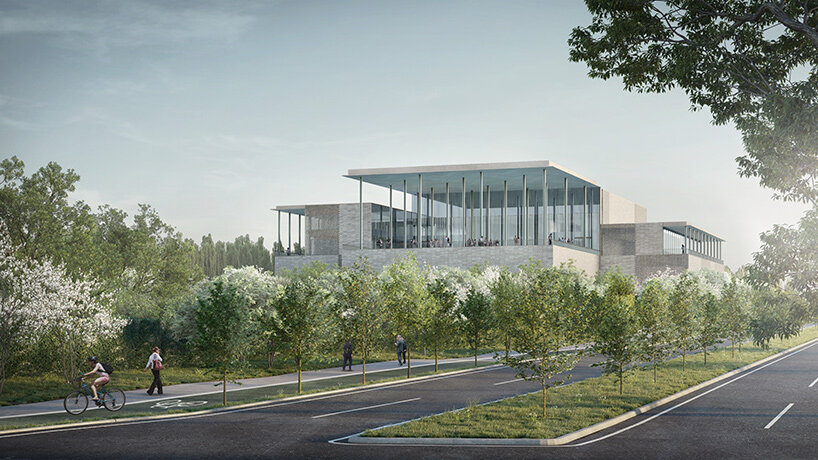
Farshid Moussavi designs the first Ismaili Centre in the United States
light geometries of perforated screens
Farshid Moussavi curates a material palette to emphasize tactile precision throughout its Ismaili Centre. Pale limestone masonry grounds the building, its rhythm broken by areas of subtle relief. The upper screens introduce a lighter register which evoke the fine geometric order characteristic of Islamic architectural ornament. Inside, the surfaces shift between smooth stone, finely grained wood, and perforated metal panels, establishing a continuity between the sacred and the civic spaces within.
Light enters through clerestory openings and skylights, filtering downward through layered planes. This controlled luminosity animates the central atrium — a generous, processional space that serves as both circulation and gathering zone, where shifting daylight brings the geometry to life.
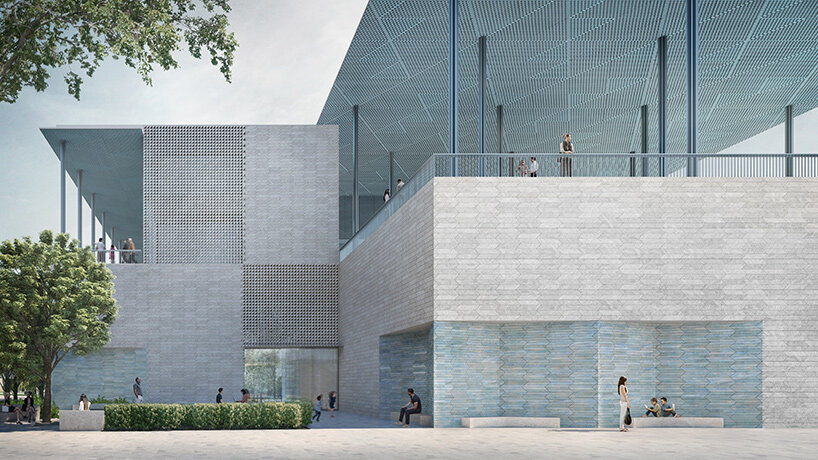
slender columns line shaded verandas that extend the building into the surrounding gardens
Beyond its architectural qualities, the Ismaili Centre Houston is conceived as a public institution. The program includes an exhibition gallery, black box theatre, educational rooms, café, banquet halls, and a prayer hall. These spaces will host cultural, intellectual, and community-oriented events, and will expand the center’s role beyond worship to include gathering and shared learning.
Farshid Moussavi describes the project as embodying ‘His Highness the Aga Khan’s vision of a space that welcomes all, fostering dialogue, learning, and cultural exchange.’ The design’s openness, both physical and social, encapsulates that intention, and uses architecture as a medium for connection rather than separation.
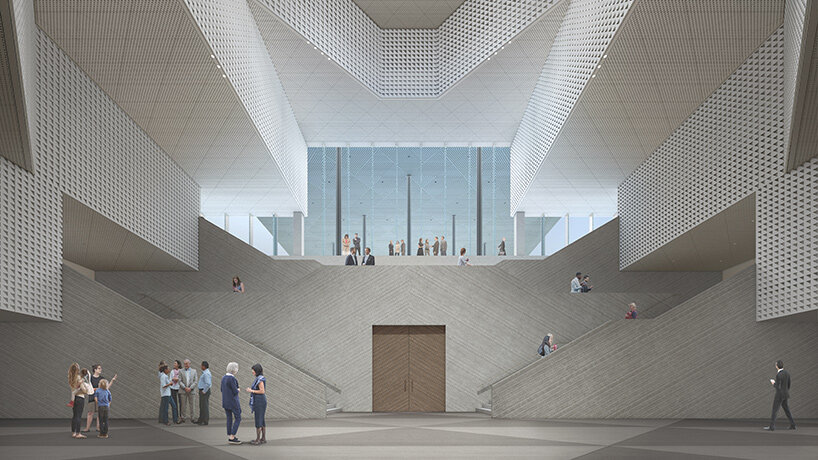
geometric perforations and patterned metal screens define the building’s luminous surfaces
Set within nine acres of gardens, the complex is framed by carefully choreographed plantings that reinterpret Islamic garden traditions through a Texan lens. Nelson Byrd Woltz’s landscape integrates native species and water features to create a calm, restorative environment. Reflecting pools extend from the main facade, reinforcing symmetry and emphasizing the building’s quiet monumentality.
The Center’s proximity to Houston’s cultural institutions — the Menil Collection, Rothko Chapel, Asia Society Texas, and the Museum of Fine Arts — places it within a broader dialogue of civic architecture. Its measured form, rooted in Islamic geometry yet contemporary in execution, offers a new architectural landmark for the city — one that speaks through proportion, craft, and light.
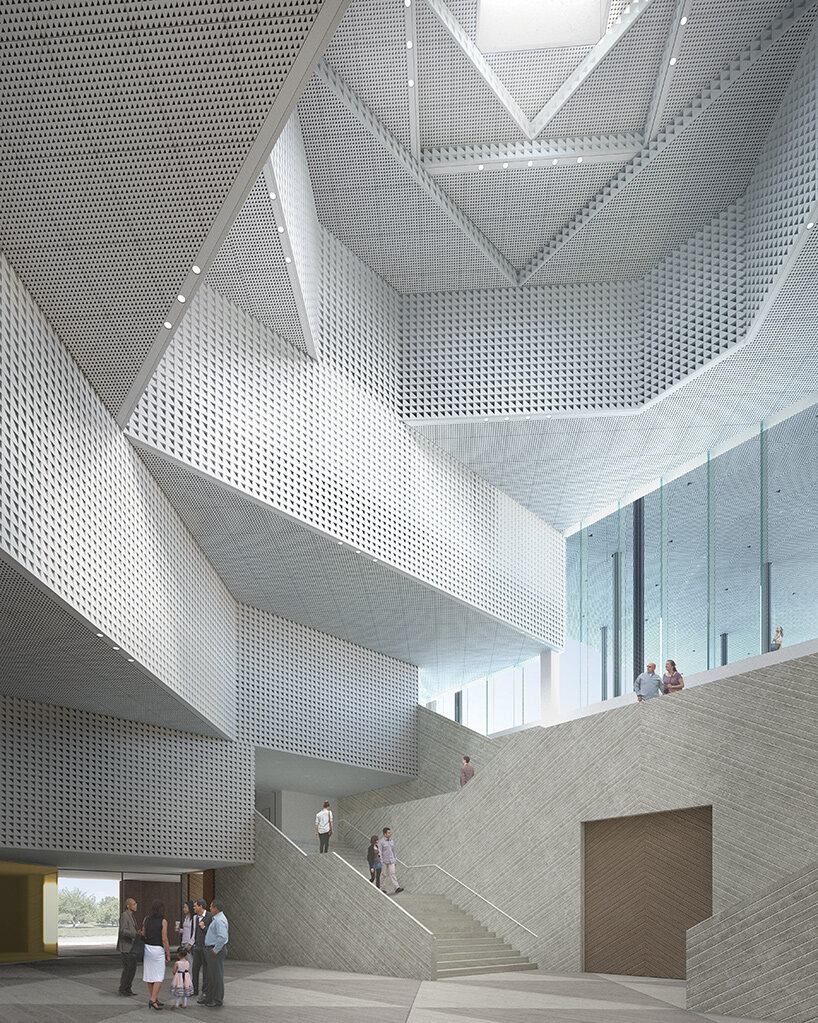
the five-story atrium forms the heart of the center with daylight filtering from above
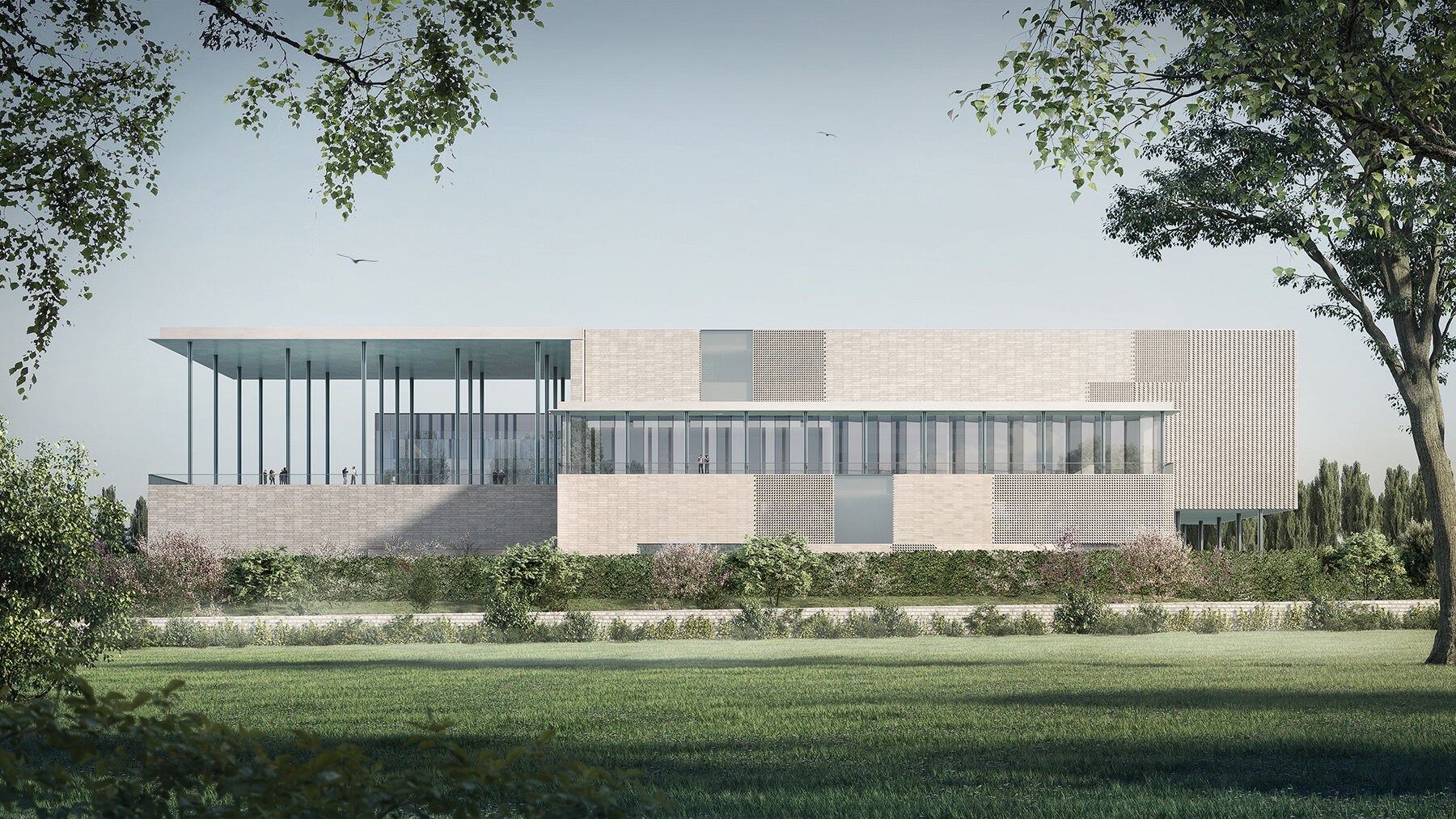
stone and metal surfaces balance weight and delicacy across the center’s interlocking forms
project info:
name: Ismaili Centre
architect: Farshid Moussavi Architecture | @farshidmoussavi
location: Houston, Texas
landscape: Nelson Byrd Woltz | @nelsonbyrdwoltz
visualizations: courtesy the Ismaili Centre
The post farshid moussavi shapes houston’s upcoming ismaili centre with perforated screens appeared first on designboom | architecture & design magazine.


